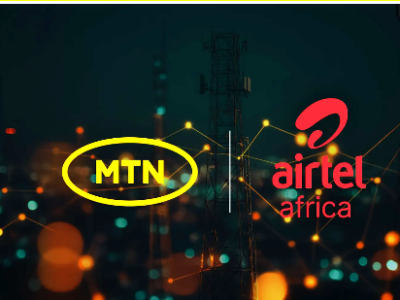Generation Z, often hailed as the digital natives, have grown up immersed in a world where technology is as ubiquitous as the air we breathe. Born between the mid-1990s and early 2010s, their familiarity with digital tools has profoundly shaped their perspectives on life and work. Yet, as they transition into the workforce, a shadow looms over their digital prowess—a phenomenon known as digital disillusionment.
RELATED: Why digital technology could worsen mental health conditions – Margaret Uddin-Ojeahere
This disillusionment is not born from a lack of digital fluency; rather, it stems from the heightened expectations and realities of modern work environments that often clash with Gen Z’s values and aspirations. For a generation that prizes purpose over paychecks, the workplace can be a source of profound disenchantment if their roles don’t align with their desire to make a meaningful impact. In fact, 93% of Gen Z express that a company’s impact on society significantly influences their career decisions.
The COVID-19 pandemic has further exacerbated this sense of professional malaise, triggering a mass loss in ambition among young professionals. As remote work became the norm, the lines between personal and professional life blurred, and many found themselves questioning the very nature of work and its role in their lives. The result is a generation that is simultaneously tech-savvy and weary of the very platforms that define their interactions.
Gen Z’s digital careers and the paradox of disillusionment
Moreover, Gen Z’s preference for careers in digital and social media-related fields points to a paradox—they are drawn to the very spaces that can contribute to their disillusionment. With 36.8% expressing aspirations to become content creators, they navigate a landscape where digital transformation promises both opportunities and uncertainties. This duality, coupled with concerns over AI potentially displacing jobs, underscores the complexity of their relationship with technology and the workplace.
In essence, digital disillusionment among Gen Z is a multifaceted issue that requires a nuanced understanding of their values, aspirations, and the challenges they face in a rapidly evolving digital world. As they seek roles that offer autonomy, purpose, and a sense of belonging, addressing their disillusionment is crucial for fostering a workplace environment that truly resonates with this generation.
Characteristics of Generation Z
Generation Z, often referred to as digital natives, represents a cohort born between 1997 and 2012, who have been shaped by an era of digital innovation and global connectivity. This generation has grown up in a world marked by rapid technological advancements, and their upbringing in a digitally defined environment significantly influences their characteristics.
Digital Nativism
Gen Zers have been immersed in technology from a young age, making them the first true digital natives. This inherent familiarity with digital tools sets them apart from previous generations, who had to adapt to these technological changes later in life. This tech-savvy nature not only influences how they interact with the world but also affects their learning styles and social interactions.
Social Consciousness
Beyond their technological proficiency, Generation Z is characterized by a strong sense of social consciousness. They prioritize social equality, community engagement, and inclusive policies, striving to challenge societal norms. This social awareness drives their demand for purpose-driven work, where they seek employment with organizations that make a positive impact on the world.
Mental Health and Well-Being
Mental health is another crucial aspect of Generation Z’s identity. They prioritize mental well-being and advocate for digital wellness and balance. Gen Zers openly discuss personal satisfaction with life and career choices, indicating a shift towards valuing psychological well-being in both personal and professional realms.
Work-Life Balance and Flexibility
In the workplace, Generation Z values flexibility and work-life balance over traditional notions of long-term tenure. They have high expectations from employers, not just in terms of career progression and security, but also in receiving feedback and recognition for their contributions. The balance between work and personal life is essential for them, reflecting their desire to find meaningful work that aligns with their life goals.
The Role of Digital Disillusionment in the Workplace
In the era of rapid digital transformation, Generation Z has emerged as a cohort uniquely equipped with digital skills, yet paradoxically facing a sense of disillusionment in the workplace. This generation, having grown up immersed in technology, brings to the workplace a distinct set of skills and views shaped by an ever-expanding digital environment. However, this very environment contributes to rising disillusionment, a phenomenon exacerbated by the COVID-19 pandemic.
The Impact of COVID-19
The COVID-19 pandemic acted as a significant trigger, highlighting the gap between the digital promises of the workplace and the reality faced by young workers. For many in Gen Z, the pandemic accelerated a mass loss in professional engagement and satisfaction, leading to an existential reevaluation of their career paths and goals. This sense of disillusionment is not just about job dissatisfaction; it’s a broader reflection on the role of work in their lives and the impact of global crises on their future.
Expectations vs. Reality
Gen Z’s digital fluency sets high expectations for their professional environment. They anticipate workplaces that are not only technologically advanced but also supportive of personal well-being and autonomy. However, when these expectations are unmet, it results in disillusionment. Companies must adapt by integrating digital tools that foster autonomy and personalization, aligning workplace practices with the values of Gen Z to bridge this gap.
Navigating Digital Anxiety
Despite their digital competence, Gen Z workers express anxiety over the rapid integration of AI and other digital advancements in the workplace. This anxiety, compounded by their socially conscious mindset, requires employers to engage in open dialogues about technological changes and to provide transparency in how these changes will affect their roles. Employers need to strike a balance between leveraging digital tools for efficiency and addressing the concerns of their workforce.
Toward a More Fulfilled Workforce
To combat digital disillusionment, companies should prioritize real-time recognition and rewards that resonate with Gen Z’s values. Recognition can be facilitated through digital platforms, offering personalized and socially conscious rewards, such as donations to meaningful causes in employees’ names. By acknowledging their contributions in ways that matter to them, organizations can build trust and loyalty, ultimately leading to a more motivated and engaged workforce.
Advantages of Digital Disillusionment as a Workforce Superpower
In an era dominated by relentless digital advancement, Generation Z emerges as a workforce equipped with an extraordinary superpower—digital disillusionment. This unique perspective, often characterized by skepticism towards the boundless promises of technology, offers distinct advantages in today’s rapidly evolving work environment.
Enhanced Problem-Solving Skills
Generation Z’s digital disillusionment fosters a critical approach to problem-solving. Raised in a world of digital saturation, this generation has learned to question the efficacy and ethical implications of technology-driven solutions. Such skepticism encourages deeper analysis and innovative thinking, essential skills in a business landscape where technology’s promises can sometimes overshadow practical realities.
Promotion of Authentic Interactions
Despite their technological fluency, Gen Z values authenticity in communication and collaboration. This desire for genuine interactions challenges the digital-first norms and encourages workplaces to prioritize face-to-face engagement. As a result, companies benefit from improved teamwork and collaboration, driven by an emphasis on human connection over digital interfaces.
Resilience Against Over-Reliance on Technology
Digital disillusionment empowers Gen Z to resist over-reliance on technology, fostering a balanced approach to work processes. This mindset prevents complacency and encourages the exploration of diverse methods and strategies, ensuring that technology serves as a tool rather than a crutch. Consequently, Gen Z contributes to a more resilient and adaptable workforce, better equipped to navigate the uncertainties of technological change.
Alignment with Ethical and Sustainable Practices
The skepticism inherent in digital disillusionment aligns Gen Z with broader ethical and sustainability goals. As companies strive to integrate environmental, social, and governance (ESG) principles, Gen Z’s cautious approach to technology supports initiatives that emphasize responsibility and ethics. This alignment not only attracts top talent but also enhances the company’s reputation and long-term viability.
Encouragement of Innovation and Creativity
Finally, Gen Z’s digital disillusionment fuels a culture of innovation and creativity. By challenging the status quo and questioning the limits of technology, this generation inspires new ideas and creative solutions. Their ability to blend technological skills with a critical mindset results in groundbreaking approaches to business challenges, redefining workplace dynamics and driving progress.
Challenges and Misconceptions
Generation Z, those born between the mid-1990s and early 2010s, has been tagged with various labels—both flattering and otherwise—as they make their mark on the workforce. They are often characterized as digital natives, a cohort fluent in the language of bytes and pixels, having grown up in an increasingly digitalized world. This inherent digital fluency is seen as both a strength and a source of misunderstanding, leading to challenges that often arise in the workplace.
The Digital Disconnection
One of the most prevalent misconceptions about Generation Z is their supposed overreliance on technology, which some argue leads to a lack of interpersonal skills. However, this view oversimplifies their relationship with the digital world. Their adeptness at using digital tools like Slack and Microsoft Teams for quick updates and real-time collaboration allows them to engage effectively in multigenerational work environments. This digital savvy is often misinterpreted as an inability to connect offline, yet it is merely a different style of communication that suits their unique needs and preferences.
Career Adaptability and Anxiety
Another significant challenge facing Generation Z is their career adaptability and the accompanying anxiety about job security. Unlike previous generations who adhered strictly to conventional career paths and markers of success, Gen Z tends to reject these societal parameters. Their pursuit of non-traditional paths often results in a spectrum of career choices, which can lead to a sense of disillusionment when their unconventional goals clash with established workplace norms.
Mental Health Stigmas
A further challenge that Generation Z confronts is the stigma surrounding mental health. This generation values mental well-being immensely and is not shy about advocating for it in professional settings. Yet, despite the growing conversation around mental health, approximately 70% of Gen Z individuals report experiencing anxiety and depression, a startling statistic that underscores the need for employers to foster supportive work environments. Breaking the stigma involves not only advocating for oneself but also encouraging a culture of openness and understanding within organizations.
Leveraging Digital Disillusionment for Organizational Success
In a world increasingly dominated by screens and digital interactions, Generation Z stands out with a unique perspective: digital disillusionment. Far from being a drawback, this disillusionment can be a secret superpower for organizations seeking innovation and fresh perspectives. Understanding how to harness this mindset is essential for any forward-thinking company.
Embracing Autonomy
One of the keys to leveraging Generation Z’s digital disillusionment is fostering a sense of autonomy within the workplace. This generation, raised in a continuously expanding digital environment, possesses distinct skills and beliefs that thrive in autonomous settings. By incorporating autonomy into the company culture, employers can create a positive work environment that promotes self-reliance and personal growth. This approach not only aligns with Gen Z’s values but also drives organizational success through motivated and empowered employees.
Creating Purposeful Connections
Gen Z employees are drawn to workplaces that connect them to a larger purpose. Rather than applying a one-size-fits-all solution, employers should strive to align individual roles with the broader organizational mission. By doing so, companies can balance the aspirations of this younger generation with the requirements of the business. Such an environment encourages engagement and productivity, crucial elements for leveraging Gen Z’s digital skepticism to foster innovation.
Continuous Learning and Adaptation
The fast-paced nature of the digital world necessitates continuous learning, a trait highly valued by Generation Z. Companies that invest in learning opportunities and skill development not only meet Gen Z’s desire for growth but also ensure their workforce remains competitive and adaptable. This continuous adaptation is vital in a job market that is constantly evolving, driven by technological advancements and new challenges.
Recognizing and Rewarding Contributions
Acknowledgment plays a pivotal role in building trust and loyalty with Generation Z employees. Implementing real-time recognition through digital platforms can be especially effective, as it aligns with their digital fluency and immediate feedback expectations. Personalized and public recognition not only validates their contributions but also enhances their connection to the organization. By recognizing Gen Z’s achievements, companies can cultivate a motivated workforce eager to contribute fresh, innovative ideas.
Leveraging Technological Tools for Meaningful Impact
To fully capitalize on Generation Z’s digital disillusionment, organizations should utilize technology-driven rewards and recognition systems. Digital gift cards, subscription services, and charitable contributions in employees’ names can resonate deeply with Gen Z’s socially conscious ethos. This approach not only acknowledges their contributions but also aligns rewards with their personal values, creating a fulfilling work experience. By understanding and leveraging the digital disillusionment of Generation Z, organizations can unlock a powerful source of innovation and engagement. Embracing autonomy, creating purposeful connections, encouraging continuous learning, recognizing contributions, and utilizing technology-driven rewards are essential strategies for tapping into this generation’s unique capabilities. In doing so, companies can harness Gen Z’s superpower to drive organizational success in the digital age.
If you decide to feature any part of our insights, we’d appreciate a kind backlink to International Drivers Association Don’t hesitate to reach out for additional data or an interview, as we’d love to collaborate further to support your work.































